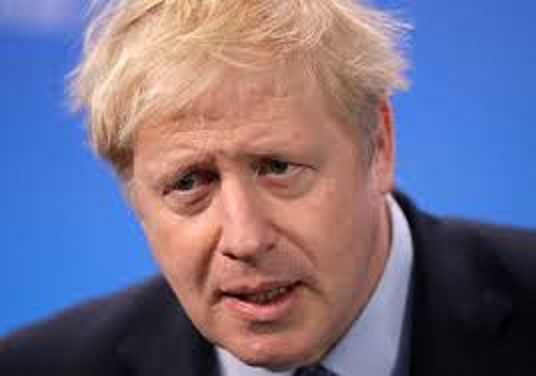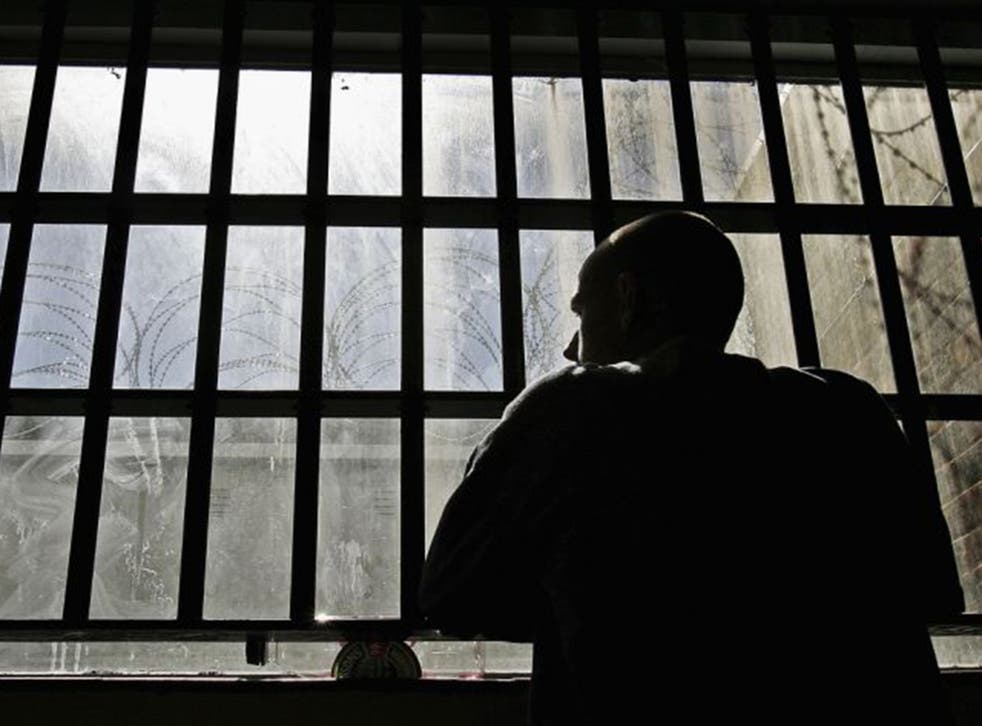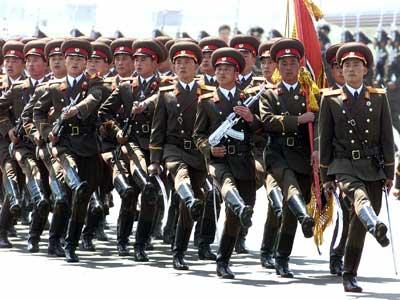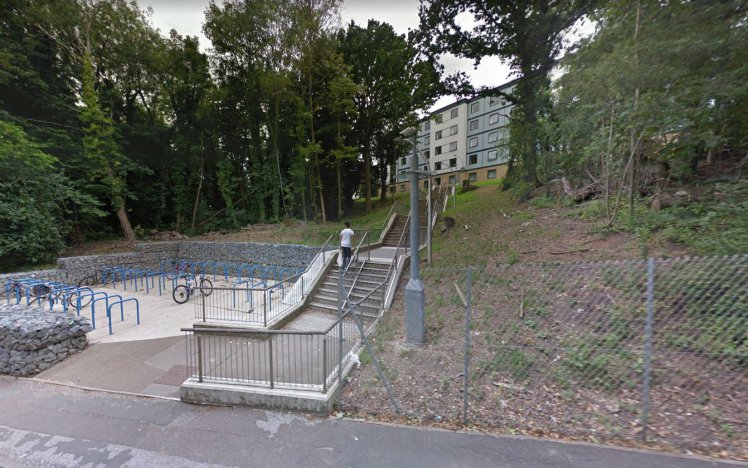Boris Johnson was on course to deliver a nightmare on Downing Street last night, after securing a huge majority in the General Election.
The Tories were predicted to pick up 50 seats which would give them their biggest election victory since Margaret Thatcher in 1987.
But Labour was on course to lose 71 seats – a massive blow to Jeremy Corbyn’s leadership – and potentially delivering the party’s worst election result since 1935.
Speaking to staff at Tory HQ, the PM suggested the Tory party needed to change to represent their broader support.
He said: “We must understand now what an earthquake we have created. The way in which we have changed the political map in this country.
“We have to grapple with the consequences of that. We have to change our own party.
“We have to rise to the level of events. We have to rise to the challenge that the British people have given us.”
Jeremy Corbyn said he would not lead Labour into another election campaign.
But he said he would stay on to oversee a period of “reflection” – and the selection of a new leader.
Big Labour names including Keir Starmer, Emily Thornberry, Becky Long-Bailey, Angela Rayner and Laura Pidcock are all expected to throw their names in the ring to replace Mr Corbyn.
The 10pm Ipsos Mori exit poll put the Tories on 368 seats – a majority of 86 – to Labour’s 191 seats, with the SNP on 55 and Lib Dems on 3.
The poll was broadly correct – leaving Mr Johnson comfortably able to deliver the first stage of Brexit by the end of January.
It would also put Mr Corbyn, who has overseen a worse election result than Michael Foot, under intense pressure to stand down.
The SNP appeared to have wiped out other parties in Scotland which would boost calls for independence.
Shadow International Trade Secretary Barry Gardiner said: “It is a deeply depressing prediction.
“Really my heart goes out to all the people who had given their hope to the Labour Party, who really were relying on us to be able to improve their lives.”
Stressing that promising to break the Brexit deadlock held the key to victory, she said the Tories had been “taking that message out across the country that we need to break the gridlock that has dominated Parliament for the last three years.
“Importantly, we have outlined throughout this entire campaign the focus has been on Brexit. We want to get Brexit done.”
Shadow Chancellor John McDonnell admitted he was “shocked” when the exit poll was published, adding: “If it’s anywhere near this it will be extremely disappointing for the party overall.”
The SNP appeared to have wiped out other parties in Scotland which would boost calls for independence.
Shadow International Trade Secretary Barry Gardiner said: “It is a deeply depressing prediction. Really my heart goes out to all the people who had given their hope to the Labour Party, who really were relying on us to be able to improve their lives.”
The Tories have desperately tried to focus on “getting Brexit done” – even though it is expected to drag on for years and hit the UK economy hard – while Labour had pledged to focus on saving public services which have been hit by nine brutal years of Tory austerity.
Mr Johnson, accompanied by dog Dilyn, was the first of the main party leaders to cast his vote, but after registering in Westminster he denied himself of one extra vote in his own marginal constituency in Uxbridge, West London. Mr Corbyn, with his wife Laura Alvarez, cast his vote later in his North London seat, and was greeted by a small number of supporters as well as a protester dressed as the Sesame Street character Elmo.
Liberal Democrat leader Jo Swinson lost her East Dunbartonshire seat by just 149 votes.
Her voice cracking with emotion, Ms Swinson congratulated her opponent but said: “Tonight we have seen that it looks likely that Boris Johnson is on course to get a majority, and its clearly a good night for the SNP.
“Some will be celebrating the Wave of nationalism that is sweeping on both sides of the border.
“These are significant results for the future of our country.
“These results will bring read and dismay people are looking for hope.”
The initial queues at polling stations prompted speculation about a big turnout after a six-week campaign dominated by Brexit, the NHS, and claims of bias and accusations that the PM was ducking scrutiny.
The exit poll is derived from voters at 144 stations being asked to fill in a mock ballot paper as they leave, disclosing how they have voted.
In the last general election, in 2017, it correctly predicted a hung parliament, while in 2015 it was more accurate than the opinion polls during the campaign but did not predict the Tory majority that emerged.
Mr Johnson is planning some radical changes to Whitehall departments.
He is also said to be considering a major reshuffle after the first stage of Brexit at the end of January, potentially with some more liberal Tories given jobs.
Senior officials in the Department for International Development and the Foreign Office have been asked by the Cabinet Office to submit plans for a merger of the departments.
But the prospect has caused alarm among senior officials and aid charities who fear that fighting poverty could be relegated as a focus.
Plans also include a separate cabinet post to be created specifically for housing – rather than having a more junior minister attending Cabinet as before. Officials at the Department for Exiting the EU are expected to be moved to either the Cabinet Office or the Department for International Trade after January 31 next year.
The Mirror has also learned that the Department for Digital, Culture, Media and Sport could be dismantled with many of its responsibilities taken over by a supercharged Department for Business, Innovation and Skills.
The move would be seen as part of a Brexit reboot of the economy, including regenerating the North, but the new department would also be responsible for reviewing the BBC licence fee.
And Mr Johnson also has plans to abolish Cabinet ministers for Scotland, Wales and Northern Ireland and replace the with a single Minister for the Union, a title he had initially styled for himself.
The radical shake-up plan is being led by Mr Johnson’s top adviser, Dominic Cummings, who helped run Vote Leave and has often expressed his disdain for the civil service who he sees as a roadblock to reform.
Labour, led by John McDonnell, had been holding formal talks with the civil service to prepare for government.
It had set out its plans for the first 100 days of power, focusing on the NHS and renegotiating the Brexit deal, which would then be put to the people in a second referendum.
Labour also had plans to create a new Ministry for Employment and a new Department for Social Security to replace the Department of Work and Pensions, which the party said had become a “symbol of fear” over the past nine years of Tory austerity.
The Government Equalities Office – which currently sits within the Cabinet Office – would be a department in its own right, with a full-time Cabinet minister. And a Corbyn-led government would have set up a new Department for Housing to one million new homes by 2024.




